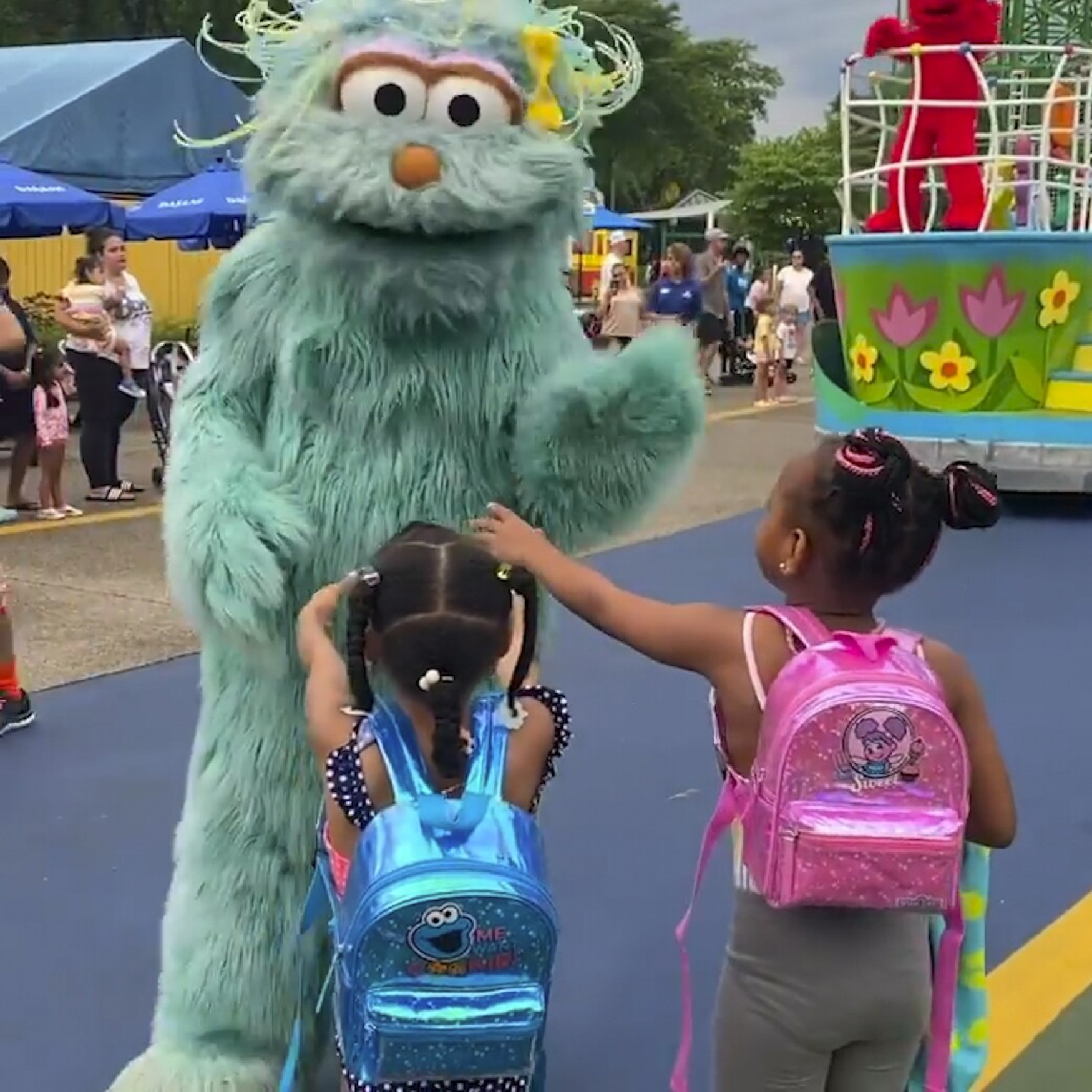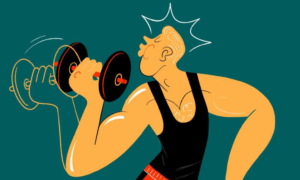Earlier this month, a video of a character appearing to snub two Black children at Sesame Place, a theme park in Philadelphia, went viral.
Less than two weeks after a video of a character appearing to rebuff two Black children at Sesame Place went viral, at least one family has sued the Philadelphia theme park for racial discrimination.
A Black father and daughter from Baltimore filed a class-action lawsuit Wednesday in Philadelphia against SeaWorld Parks & Entertainment, which operates Sesame Place. The complaint alleges that characters at the “Sesame Street”-themed park “refused to engage” with their family “and all other Black guests in attendance.”
The plaintiffs — identified individually as Quinton Burns and K.B. and collectively as the Burnses — are seeking compensatory, actual, punitive and statutory damages, including interest, exceeding $25 million.
The lawsuit claims that theme-park performers dressed as “Sesame Street” characters — including Elmo, Ernie, Telly Monster and Abby Cadabby — have committed “pervasive and appalling race discrimination against children in the operation of Sesame Place Philadelphia.”
After visiting Sesame Place in June, the Burnses intend to represent “all Black persons who … suffered disparate treatment” from Sesame Place employees who allegedly ignored Black children “while openly interacting with similarly situated white children.”
In a statement provided Thursday to the Los Angeles Times, Sesame Place said it will “review the lawsuit filed on behalf of Mr. Burns.”
“We look forward to addressing that claim through the established legal process,” the statement read. “We are committed to deliver an inclusive, equitable and entertaining experience for all our guests.”
The lawsuit demands that SeaWorld Parks & Entertainment implement “rigorous mandatory cultural sensitivity training,” as well as “mandatory educational courses … on the history of discrimination against Black people in America” for its staff. The Burnses also request that the theme-park giant vet future applicants via “state of the art psychological screening methods … to avoid hiring racially bigoted employees and agents,” as well as evaluate “by appropriate psychological testing and behavioral history” existing staffers in order to determine the fate of their employment.
The Burnses’ lawsuit lands shortly after Jodi Brown posted a video on Instagram of a Sesame Place employee dressed as Rosita waving off her young daughter and a friend during a parade at the Philadelphia theme park.
After Brown’s footage of the performer appearing to snub two Black girls ignited a backlash and raised allegations of racism on social media, Sesame Place issued a statement claiming that the “‘no’ hand gesture” from Rosita was “not directed at any specific person,” but rather “a response to multiple requests from someone in the crowd who asked Rosita to hold their child for a photo which is not permitted.”
“The Rosita performer did not intentionally ignore the girls and is devastated about the misunderstanding,” the statement read. “We apologize to these guests for not delivering the experience they expected and we commit to do our best to earn their and all guests’ visit and support.”
When that response didn’t go over well, Sesame Workshop — the organization behind “Sesame Street” — issued a second apology vowing to “conduct bias training and a thorough review of the ways in which [Sesame Place employees] engage with families and guests.”
“What these children experienced is unacceptable,” Sesame Workshop said.
“We will continue working with our long-term partner Sesame Place to ensure that appropriate actions are taken and that incidents like this do not happen in the future.”
Times library director Cary Schneider contributed to this report.
From the Oscars to the Emmys.
Get the Envelope newsletter for exclusive awards season coverage, behind-the-scenes stories from the Envelope podcast and columnist Glenn Whipp’s must-read analysis.




